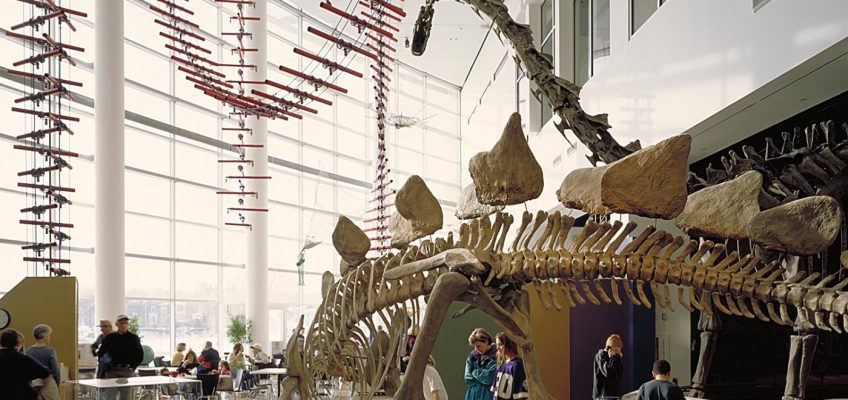By DEEPA BHARATH and FATIMA HUSSEIN
WASHINGTON (AP) — A surprise move by the IRS that would allow pastors to back political candidates from the pulpit without losing their organization’s tax-exempt status is drawing praise from conservatives and even some progressive religious groups but concern from other leaders of faith, along with tax and legal experts.
FACT FOCUS: Trump misrepresents facts about wind power during Cabinet meeting
US issues sanctions against UN investigator probing abuses in Gaza
Trump administration resumes sending some weapons to Ukraine after Pentagon pause
Man accused of Trump assassination attempt in Florida seeks to remove defense attorneys from case
Republicans urge US universities to cut ties with Chinese-backed scholarship program
A 1954 provision in the tax code called the Johnson Amendment says churches and other nonprofits could lose their tax-exempt status if they participate or intervene in any political campaign on behalf of or in opposition to any candidate for public office. The rule was rarely enforced.
While the IRS did not go as far as calling for the repeal of the Johnson Amendment, it said in court documents Monday that communications in good faith by a church to its flock does not amount to “intervening” or affecting the outcome of a political campaign.
“Communications from a house of worship to its congregation in connection with religious services through its usual channels of communication on matters of faith do not run afoul of the Johnson Amendment as properly interpreted,” the IRS said.
The new IRS interpretation came after decades of debate and, most recently, lawsuits from the National Religious Broadcasters association and other conservative churches complaining that the amendment violates their First Amendment rights, among other legal protections.
Speaking to reporters Wednesday, President Donald Trump called the IRS’ assessment “terrific.”
“I love the fact that churches can endorse a political candidate,” he said. “We have a lot of respect for the people that lead the church.”
While some congregations see a new freedom to speak openly about preferred candidates, others see openings for campaign finance corruption, new pressures on religious leaders and an overall entanglement between church and state.
Praises to the IRS
Robert Jeffress, pastor of a Baptist megachurch in Dallas and a Trump ally, called it “the right decision.” He said his church’s tax-exempt status was threatened because of an IRS investigation into their political endorsements, costing the megachurch hundreds of thousands in legal fees.
“The IRS has no business dictating what can be said from the pulpit,” he said. “They need to stay the heck out of our churches.”
Calvary Church Chino Hills, a Southern California megachurch led by Jack Hibbs, has been endorsing candidates for years, particularly in local elections. Gina Gleason, director of the church’s political engagement team, said she hopes the move will encourage smaller churches previously hesitant for fear of triggering an IRS response.
“I’d have thought if the IRS had targeted any church it would’ve been us,” she said. “But we got sound legal advice from lawyers and religious liberty organizations that explained we were within our constitutional rights.”
For Democrats trying to connect with people of faith, this decision is timely, said Doug Pagitt, pastor and executive director of Vote Common Good, a progressive and evangelical Christian organization.
“Conservative pastors who have been blatantly endorsing candidates regardless of the Johnson Amendment over the years created a disadvantage causing Democrats to step away from faith voters,” he said. “There was a true imbalance between how many more opportunities there were for Republican voters.”
The IRS statement, Pagitt says, also puts an end to the delicate dance pastors and congregations were forced to do.
“You could talk about politics in the church gymnasium, but not in the sanctuary or from the pulpit,” he said. “Pastors could express political opinions on their personal Facebook page, but not on the church’s website. It’s just silly.”
Church politicking concerns
Tax and constitutional law experts, meanwhile, are wary of what entanglements could arise from the IRS’ new position.
Philip Hackney, a University of Pittsburgh School of Law professor who studies the relationship between churches and tax authority, said the decree could allow churches to push new boundaries.
“It’s essentially creating a political intervention tax shelter for churches,” Hackney said. “It has the potential to corrupt their mission, more towards politics and away from their true beliefs.”
Other religious groups, particularly in faith communities of color, are viewing it with skepticism. The Rev. Mark Whitlock, senior pastor at Reid Temple African Methodist Episcopal Church in Glenn Dale, Maryland, said it raises more questions than answers.
“From those of us in the Black church, this decision is being viewed with caution, apprehension and skepticism,” he said. “The question we’re asking is: ‘Why now?’”
Whitlock said he will continue to do what the Black church has always done — educating and civically engaging parishioners. His congregants’ political views vary, too.
“If I do say something in church, it needs to be God-centered, God-focused and a revelation that God gave you,” Whitlock said. “You can’t go to the pulpit as a campaign manager.”
Raymond Chang, president of the Asian American Christian Collaborative, warned that a repeal of the Johnson Amendment could help tether some congregations to certain parties or candidates.
“This can lead to a partisan identity becoming the primary marker of a church or congregation, over a commitment to the Gospel, which cuts against both existing major parties,” he said. “Church leaders may also face pressure to make political endorsements.”
California Gov. Gavin Newsom said Wednesday that he finds the IRS’ position on the issue “politically convenient and cynical.”
“We’ve seen a lot of the pulpit be coming more and more political over the years — almost weaponized in that respect,” the Democrat said at a church in South Carolina.
What comes next
About 8 in 10 U.S. adults believe churches and other houses of worship should not come out in favor of one political candidate over another during elections, a Pew Research Center survey conducted in 2022 found.
White evangelicals and Black Protestants were a little more divided on the matter, with about one-third in each group favoring political endorsements. But in every other religious group surveyed, there was a strong consensus against political involvement by houses of worship.
Others are more optimistic that the IRS statement puts to bed unfounded criticisms against the agency for a rarely enforced rule.
Terry Lemons, a former IRS official who began at the agency under Democratic President Bill Clinton, called it a “common sense approach through a narrowly written filing.”
Roger Colinvaux, a Catholic University of America law professor, said he would caution churches against “overinterpreting” the IRS statement. He points out that the word “endorse” does not appear anywhere in it and said his biggest concern is religion being used as a partisan tool in campaigns.
Pagitt at Common Good said not all pastors will seize the opportunity because they might be ministering to a divided congregation or might not be comfortable mixing politics and religion.
Chieko Noguchi, spokesperson for the U.S. Conference of Catholic Bishops, said Tuesday that the IRS statement doesn’t “change how the Catholic Church engages in public debate.”
“The Church seeks to help Catholics form their conscience in the Gospel so they might discern which candidates and policies would advance the common good,” Noguchi said. “The Catholic Church maintains its stance of not endorsing or opposing political candidates.”
Bharath reported from Los Angeles. Associated Press writer Meg Kinnard in South Carolina contributed reporting.
AP’s religion coverage receives support through the AP’s collaboration with The Conversation US, with funding from Lilly Endowment Inc. The AP is solely responsible for this content.




